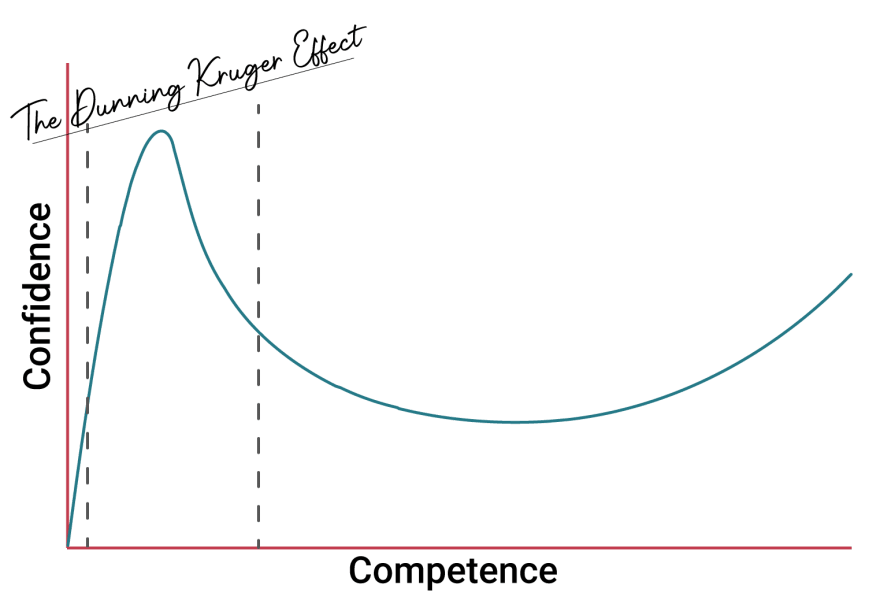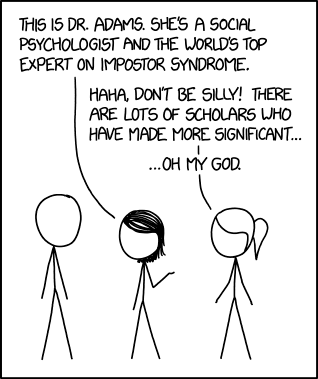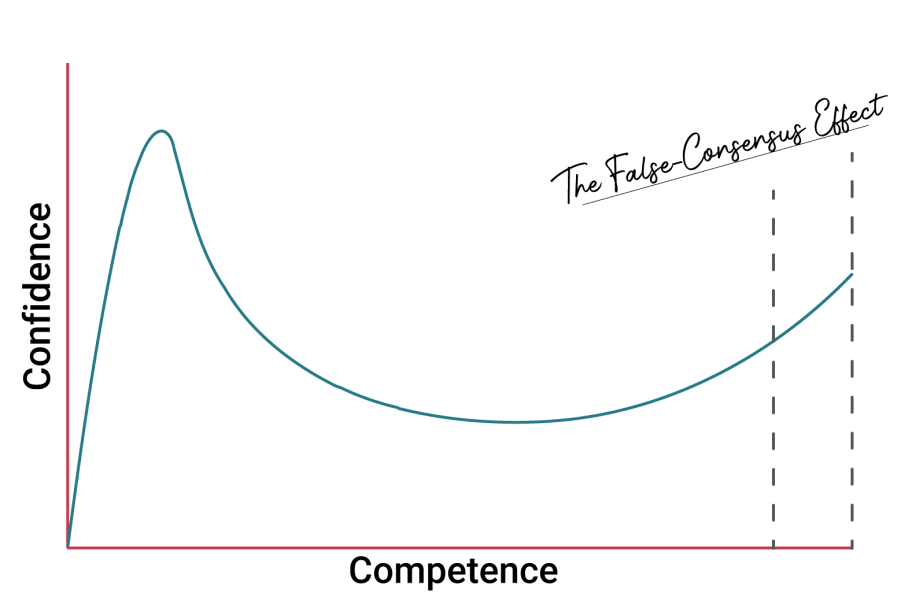
What is the Dunning-Kruger effect, and how to overcome it?
Overestimation happens constantly and oftentimes we are unaware of this bias. Luckily for us and everyone around us, it is possible to overcome this phenomenon called the Dunning-Kruger effect.
We humans often think we behave in a most rational and logical way. When presented with a particularly hard question we could even come up with a solution right of the bat. When we are asked to estimate our skill in a certain sport, mathematics, political aspect or driving we probably belong to the top 25%.
Although it sounds reasonable, usually we are wrong. In this article we will explain how, but first, what is the Dunning-Kruger effect exactly?
What is the Dunning-Kruger Effect?
The Dunning-Kruger Effect is a cognitive bias where people who perform poorly on a certain task tend to overestimate their own performance. The problem is twofold, since not only do people have a certain inability, they are also unable to acknowledge their inability, therefore overestimating their capabilities.
This simply means that someone who is not competent, is likely to overrate his or her skills. Overestimating ourselves yourself common. But this effect dramatically increases when we are incompetent at a certain skill or task.

As you can see a low amount of skill results in high levels of confidence. This does not necessarily mean something bad. It could give you the confidence to start a task in the first place, instead of not even trying. But there is a catch. The Dunning-Kruger Effect is often not noticed by the person in question. The downside effects are mostly noticed by the people around them. You and me for example. This is the case when people start bragging or exaggerating about their abilities.
How does the Dunning-Kruger effect work?
Socrates once said that his wisdom was knowing how much he did not know. Little meaning it had back then, it is even more applicable now. The overconfidence of the Dunning-Kruger Effect is not just meant to show off. It is a genuine inability to see one’s own shortcomings.
An example
Imagine this, you are invited to take a test on a subject you know close to nothing about. It consists of 40 questions about genetics and DNA. After you finished, since you had no knowledge on the given subject, it would be challenging to accurately estimate what your score would be. The same happens when terrible drivers overestimates their driving skills. They simply do not recognize their inability. Therefore, they also do not know whether their skill could improved easily or not.
What is the opposite of the Dunning-Kruger Effect?
The opposite of the Dunning-Kruger Effect is the Impostor Syndrome. This is a cognitive bias where someone is unable to acknowledge his or her own competence. In spite of numerous instances of success, they are unable to attribute this success to internal factors. Instead, they externalize the reasons for their competence and attribute it to luck, timing or even deceit.

The perceived fraudulence could involve several aspects like inauthentic ideation, depressive tendencies, social anxiety and high self-monitoring skills. It is unlikely that the Impostor Syndrome has it’s cause in low self-esteem. People with the Impostor Syndrome are highly critical though. This often results in a strong pressure to excel (Kolligian Jr & Sternberg, 1991). This could also attribute to the fact that the Impostor Syndrome often occurs in academics or highly successful people.
The False-Consensus Effect
The False-Consensus Effect could also be seen as an opposite of the Dunning-Kruger Effect. This is a cognitive bias wherein people believe their own behavior and choices are relatively common in comparison to others. They tend to overestimate the prevalence of the behavior in other people, as well as other people’s abilities in comparison to theirs. You could call it unknowingly modest.
In the original study of David Dunning and Justin Kruger (1999), they mentioned this effect. They stated:
“Although our emphasis has been on the miscalibration of imcompetent individuals, along the way we discovered that highly competent individuals also show some systematic bias in their self appraisals. Across the four sets of studies, participants in the top quartile tended to underestimate their ability and test performance relative to their peers.”

The False-Consensus Effect as well as the Dunning-Kruger Effect both show a regression to the mean. This means that when experiencing the effects of either, you are unable to estimate the average performance on the task in comparison to yours. Incompetence results in overconfidence and extreme competence results in overly modest behavior. Luckily there is a way around these biases, and it is called meta-cognition.
How to overcome the Dunning-Kruger Effect
To overcome the Dunning-Kruger Effect you could train or practice the subject in question. Dunning and Kruger found out that when you train the person on the particular subject. The increased knowledge helped the person in question identify and recognize his own incompetence. Meta-cognition is behind all this. Below are some steps you could take to master the Dunning-Kruger Effect.
1. Improve your meta-cognition
Meta-cognition is what psychologists call “the knowledge about your own thought processes and the ability to understand your own cognition.” This refers to the ability to think about your own thinking. It is one of the skills that make the human a dominant race, since we can reflect on thoughts and change them consequently.
The amount of meta-cognition increases when our ability of a certain task increases. We are then able to reflect on our overconfidence and adjust it to a more realistic thought.
2. Ask for feedback
Feedback also plays an important role in estimating one’s own ability. Honest and true feedback is valuable to find out where the boundaries of your own competence lie. Not only does it show what need improvement, good feedback also gives advice on how to improve. If taken seriously, feedback could help in closing the knowledge gap that is called the Dunning-Kruger Effect.
3. Question yourself
Do not take your own thoughts for granted. We have learned that we are not rational and objective when making decisions, and that we are being influenced by a variety of subconscious factors when making a decision. Take a look at the paradox of choice for example.
Questioning ourselves gives us the opportunity to look at subjects from a different perspective. Whenever you end up in a situation where the Dunning-Kruger Effect might be lurking, question your own thought process. If I know nothing at all, how confident would I be? And how confident should I be?
4. Practice makes perfect
Cognitive biases would not be biases if we would not fall for them once in a while. Excluding them completely from your life is a very demanding task and probably not worth the effort. Although, on some occasions, the Dunning-Kruger Effect could be avoided by simply knowing how and when you could fall for it. Experiencing the effect and falling for it several times helps you realize when it could happen again. When a similar situation occurs, think about your response calmly and always consider biases might be involved.
Neurofied Takeaway
Our main goal is to help you thrive in this complex world filled with cognitive biases. Since you read al this way through the article we would like to give you a small gift to help you overcoming this bias when recognizing it in others.
Humans do not like to be wrong. Whenever they overestimate themselves, it is probably not the best idea to explain this. Instead, try showing them their incompetence by letting them find out themselves.
In the end, it is not your goal to show someone he is incompetent, it is your goal to help him be competent.
- Kolligian Jr, J., & Sternberg, R. J. (1991). Perceived Fraudulence in Young Adults: Is There an ‘Imposter Syndrome’? Journal of Personality Assessment, 56(2), 308-326. doi:10.1207/s15327752jpa5602_10
- Kruger, J., & Dunning, D. (1999). Unskilled and unaware of it: how difficulties in recognizing one’s own incompetence lead to inflated self-assessments. Journal of personality and social psychology, 77(6), 1121.
If you want to learn more about behavioral insights, read our blog or watch 100+ videos on our YouTube channel!
About Neurofied
Neurofied is a behavioral science company specialized in training, consulting, and change management. We help organizations drive evidence-based and human-centric change with insights and interventions from behavioral psychology and neuroscience. Consider us your behavioral business partner who helps you build behavioral change capabilities internally.
Since 2018, we have trained thousands of professionals and worked with over 100 management, HR, growth, and innovation teams of organizations such as Johnson & Johnson, KPMG, Deloitte, Novo Nordisk, ABN AMRO, and the Dutch government. We are also frequent speakers at universities and conferences.
Our mission is to democratize the value of behavioral science for teams and organizations. If you see any opportunities to collaborate, please contact us here.
